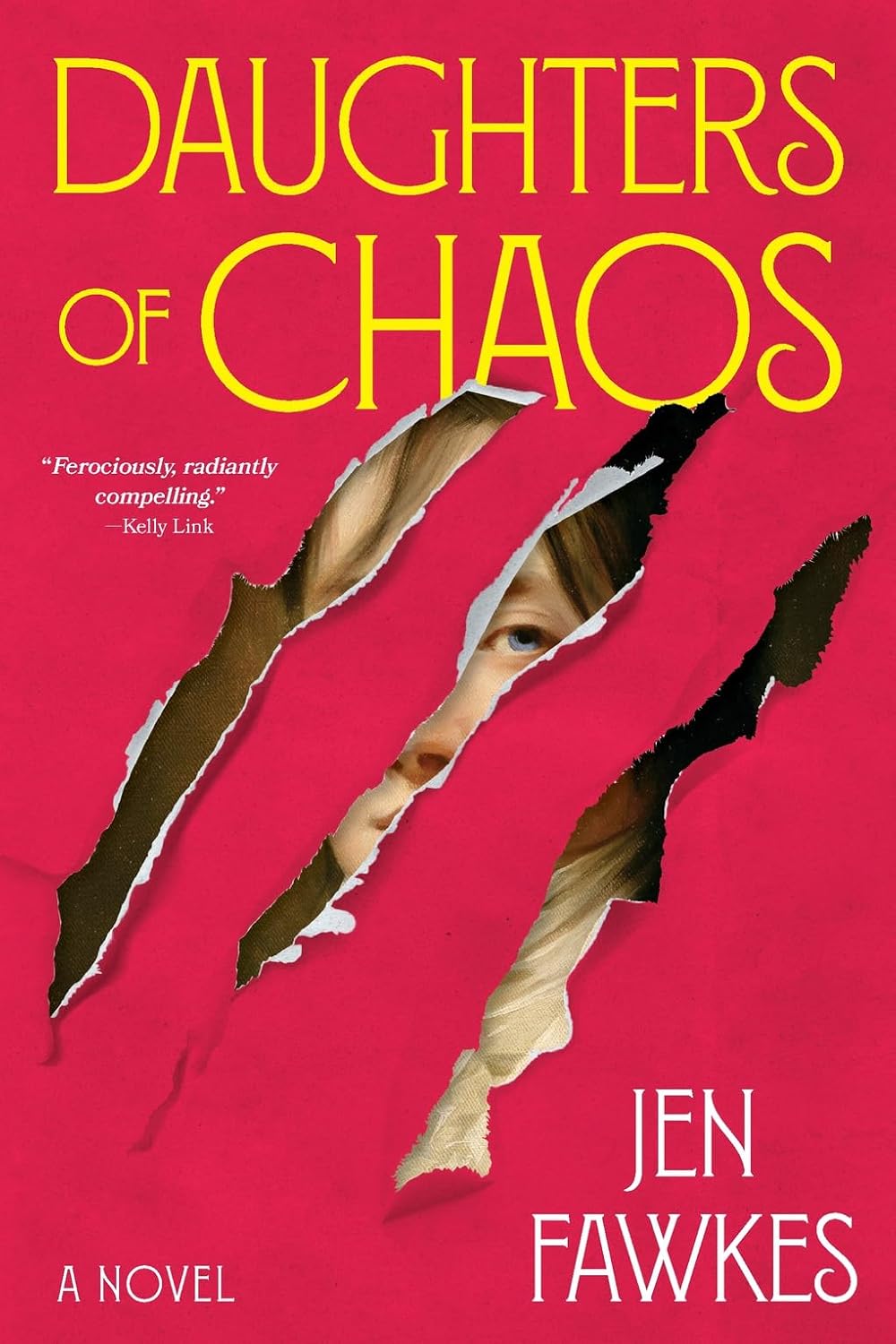
Daughters of Chaos
Jen Fawkes
The Overlook Press, 2024, 288 pages
$27.00
Reviewed by Martha Miller
Jen Fawkes is an award-winning author with a literary style that is at times lavish and stunning. I particularly enjoyed her periodic aphorisms reminiscent of Oscar Wilde.
For the most part, Daughters of Chaos is an epistolary novel told from multiple first-person perspectives of a set of twins, Silas and Sylvie. The narratives include their childhood and letters from their teen years onward. A major part of the story is about the Civil War, during 1862, and looking back on the events from 1877. The book is multilayered, while the story is advanced in sequence from the beginning to the end of Sylvie’s life. Historical figures are interspersed with fiction. The tale is more than simply a story of letters—it also includes encyclopedia entries, a translated play, news articles, and more. It synthesizes history, myth, and sheer invention, incorporating stories along with periodic jumps into ancient Greek drama. For me, these additional layers made the novel harder to follow. Nonetheless, the writing is engaging and well-crafted.
The story starts with the twins’ pregnant, unwed mother, Brigitte, and their tinkering, unavailable father. As children, they are abandoned by their mother and older sister and left alone with their father. While we see them from childhood, the lion’s share of the book takes place in Silas’ and Sylvie’s young adulthood. After the father’s death, Silvie’s brother leaves her, and we hear from him in letters which contain stories of his Confederate adventures in submarine construction and maintenance. Close to adulthood, Sylvie runs away to Nashville in search of her sister, Marina. There, she joins a Ladies Aid Society, a Union spy’s secret society of magical women disguised as prostitutes, secretly supporting the Union cause. These public women are all part of an ancient cult dedicated to trouble-making and the worship of Chaos. They work together toward a golden era of female sovereignty. Sylvie is tasked with translating the final, lost comedy of Aristophanes, and with the help of a dozen Priestesses of Chaos, works on it daily from the time she arrives in Nashville.
In an especially interesting section, we are told that real prostitutes nearly defeated the Union army due to syphilis. The authorities in Nashville recognize this prostitution problem and decide to round up all of these women and ship them elsewhere to rid Nashville of the disease. The prostitutes are put on a ship, and in a long, grueling trip, go from one port to the next, rejected each time until, unbathed, dehydrated, hungry, and some dead from suicide, they return to Nashville, where new laws are made to make prostitution legal. Working women are licensed and must have physicals that render them clean of disease. Early on, Sylvie tells us, “The fact that you’ve never seen something doesn’t mean it doesn’t exist.” This sets up the reader for the speculative nature of the novel. Incredibly, we encounter a creature like Ray Bradbury’s Fog Horn, with silver scales, who is Silvie’s long-lost sister.
My problem with this novel is the scattershot structure. I wish I could tell you the whole thing comes together like a puzzle, but if so, I didn’t see it. The novel weaves together Greek mythology, Civil War history, sisterhood, fire, sex, and love. There are layers of text, journal entries, letters, narratives, play performances, as well as side stories told by other women. One in particular that will stick in my mind is about a woman who wants to murder her daughter because, despite appearances, she believes the girl isn’t hers. The father stops his wife several times and finally kills her. Then, because he loves her and couldn’t live without her, he kills himself. However, these bits and pieces take the reader in and out of the narrative.
While some lesbian attraction develops, only at the end does it come to fruition. The bewitching Hannah and Sylvie eventually ride off together toward California, into the sunset, one might say, where Sylvie gives birth to twins. Silvie puts the scraps of her life together in a book, and she also, like her sister, becomes a leviathan. In the end, we find Sylvie ready to teach her daughters how to belong to themselves.
Martha Miller is a retired English professor and a Midwestern writer whose books include fiction, creative nonfiction, anthologies, and mysteries. Her nine books were published by traditional, but small, women’s presses. She’s published several reviews, articles, and short stories and won several academic and literary awards. For more detailed information, her website is https://www.marthamiller.net/. Her Wikipedia page is here. She lives in ‘The Land of Lincoln’ with her wife, two unruly dogs, and two spoiled and sleepy cats.